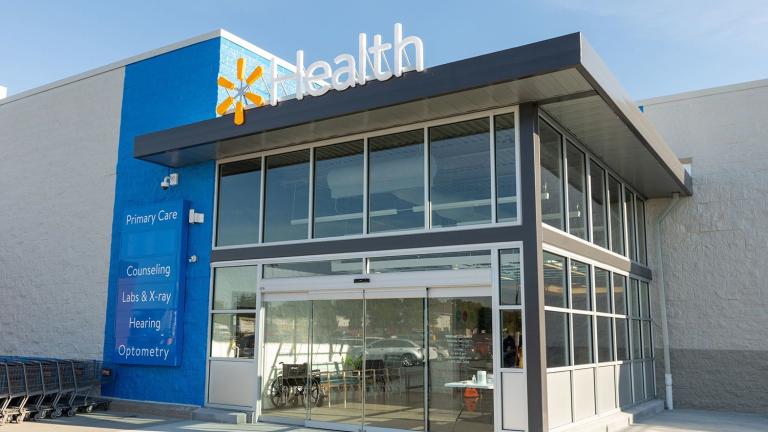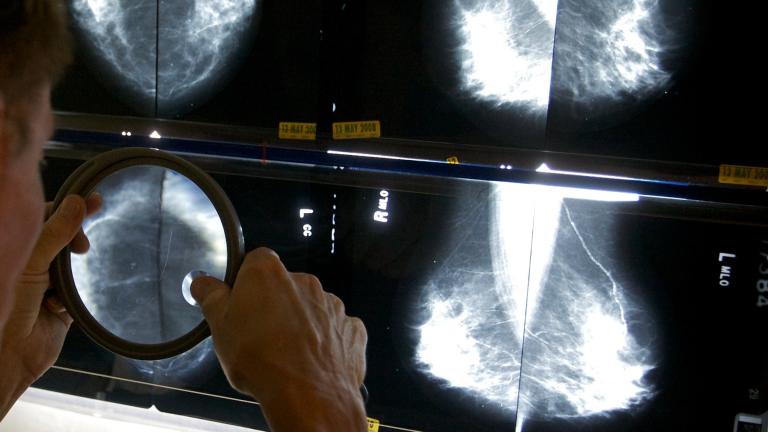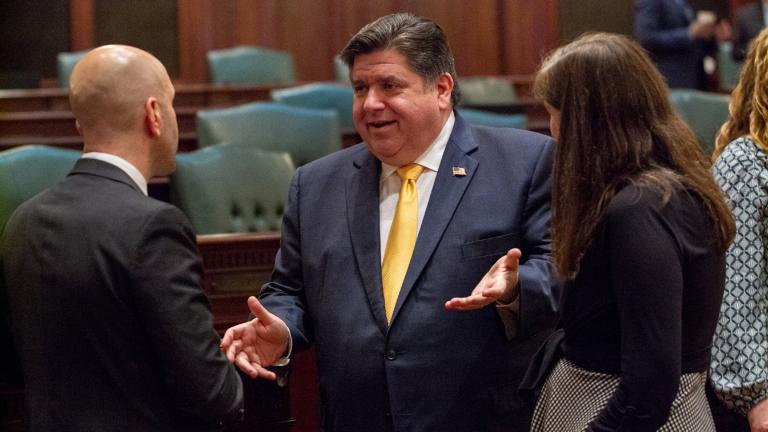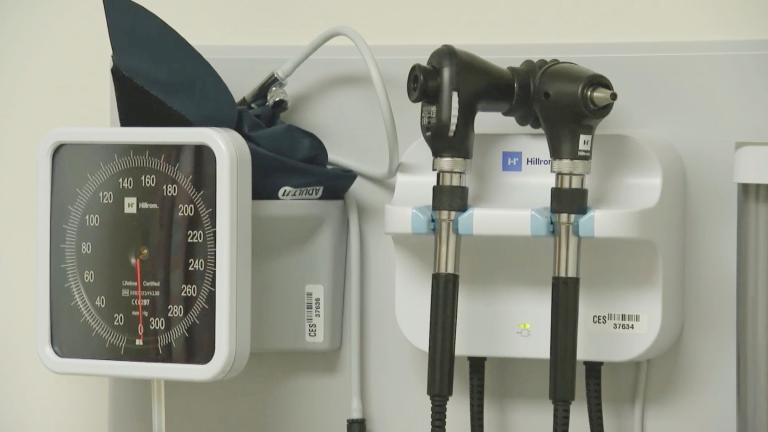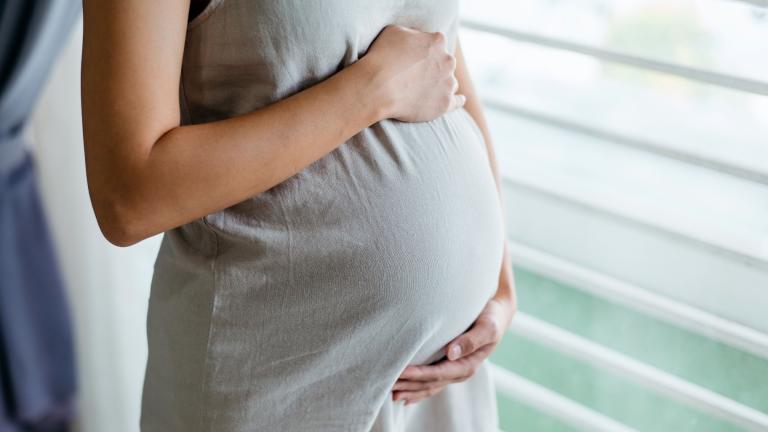 (agilemktg1 / Flickr)
(agilemktg1 / Flickr)
With nearly 16,500 senior immigrants enrolling in a state health care program for low-income non-citizens, Illinois is setting a Nov. 6 sign-up deadline.
Eligible Illinois residents who submit applications past then won’t be covered by Health Benefits for Immigrant Seniors (HBIS).
The Department of Healthcare and Family Services (HFS) announced the cutoff date on Thursday, making good on a spring promise to limit membership in order to keep costs in check.
Activists who want the program expanded rather than curtailed said that the move was expected but nonetheless disappointing.
In July, Illinois suspended enlistments to a separate program, Health Benefits for Immigrant Adults. Since 2022, HBIA has provided Medicaid-like coverage for eligible non-citizens aged 42-64.
The approximately 19,000 and counting migrants Chicago is struggling to house are not covered by either program, because there are different options for individuals based on the visa or status they’re seeking. HBIS and HBIA are setup to cover immigrants with green cards and undocumented immigrants, including those with Temporary Protected Status.
“Many recent migrant arrivals who are seeking asylum or sanctuary would qualify for either the AATV program (Asylum Applicants and Torture Victims) or VTTC program (Victims of Trafficking, Torture and Other Serious Crimes),” an HFS official said.
Illinois has seen an explosion of interest in – and a surge in cost of— the programs since the senior version was first offered in 2020, to the point that Gov. J.B. Pritzker’s administration this spring said the state couldn’t afford to leave enrollment open-ended.
DHFS projected that without limits, costs could reach $1 billion.
This year’s spending plan budgets half that, $550 million, for both the adult and seniors programs.
Healthcare and Family Services, the state agency that administers the program, indicated that costs are running high because of the rate people are enrolling and due to enrollees’ extraordinary health care needs, likely high because individuals had gone without any health care coverage.
“Compared with the traditional Medicaid population, month-over-month enrollment has grown at a higher rate, and per-enrollee costs have tracked higher among the HBIA and HBIS-enrolled populations due to more prevalent, untreated chronic conditions and higher hospital costs, pushing the limit of the funds made available for these programs for the current fiscal year,” the department said in a news release.
Pritkzer also sought to contain costs by instituting co-pays and cost-sharing, but HFS has not yet gone forward with passing rules that would implement them. That means for now, enrollees don’t have to pay those out-of-pocket expenses, to the frustration of Republican lawmakers generally opposed to spending state money on health care for citizens without legal status.
HFS said in an email that it expects to implement co-pays come January.
“The Department has not yet put out implementation guidance to providers about when co-pays apply and when they do not,” HFS said in an email statement. “Providers will be notified when the needed changes are complete, at which time they will be able to collect co-pays/co-insurance.”
Health care for non-citizens was a major point of contention during the legislature’s spring budget negotiations.
Latino legislators and leaders of the Healthy Illinois Campaign, an organization that advocates for health care for all regardless of immigration status, fought to expand coverage so that all non-citizen adults (meaning those 19 and older) would be eligible.
Instead, the state curtailed the program with the coverage cut-off, a move that at the time was decried by Latino lawmakers as racist and shortsighted.
U.S. Rep. Delia Ramirez, D-Chicago, who sponsored the initial program’s creation when she was a member of the state legislature, also questioned Pritzker’s budget projections.
“It’s extremely disappointing to hear that the state administration has decided to stop immigrants from accessing life-saving health insurance under the pretense that it costs too much, especially since the alleged costs of the program are in question,” Ramirez said in June. “The idea that, in the richest nation in the world, we have to choose between who is worthy of affordable access to health care and who is not is a false choice built on fearmongering and anti-immigrant rhetoric. This decision won’t only put thousands of hard-working, taxpaying immigrants’ lives in danger, but it will also cost the state money in the long run.”
Advocates’ reaction has tempered, though Healthy Illinois Campaign director Tovia Siegel said in a statement on Thursday that the paused enrollment will limit seniors’ access to health care services.
“The HBIS program provides vital, lifesaving health care services to thousands of vulnerable older adults across Illinois,” Siegel said. “Our state leaders have repeatedly said that health care is a human right that should be accessible for all Illinois residents, and we will continue to fight to make that a reality.”
Costs associated with HBIS and HBIA are not included in the $330 million the state has spent on humanitarian aid for tens of thousands of migrants, mostly from Venezuela, who continue to be bused and flown from Texas to Chicago.
Pritzker has pressured the White House to step up with more funding and coordination, while city leaders are pushing for more money from the state.
The governor and legislative leaders have made clear there’s no appetite in Springfield to appropriate a separate funding stream, noting that there isn’t any money available.
Even with the coverage caps for the health care program in place, no one who is currently registered for HBIS or HBIA and continues to meet the eligibility criteria will lose coverage.
“HFS understands that this program is a vital resource for individuals who would otherwise be eligible for Medicaid but for their immigration status,” the release said. “The Department will continue to monitor the costs associated with the program and is committed to preserving this nation-leading program for the future.”
The agency described the enrollment deadline as a “temporary pause” but offered no information on when or if the pause will be lifted.
“HFS does not have a timeframe for re-starting enrollments right now,” a spokesperson said in response to questions from WTTW News. “The Department continues to closely monitor program costs.”
Follow Amanda Vinicky on Twitter: @AmandaVinicky


